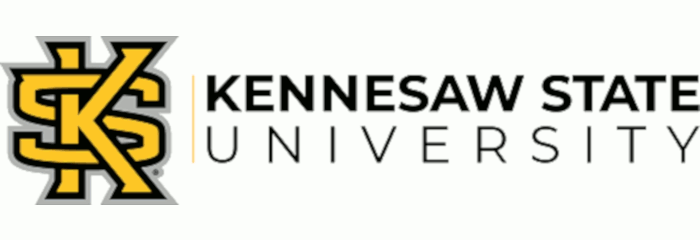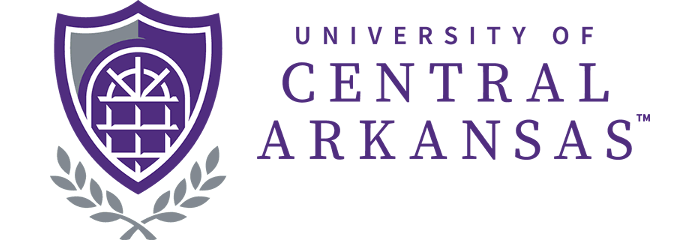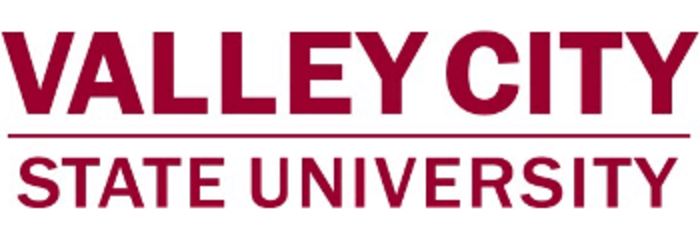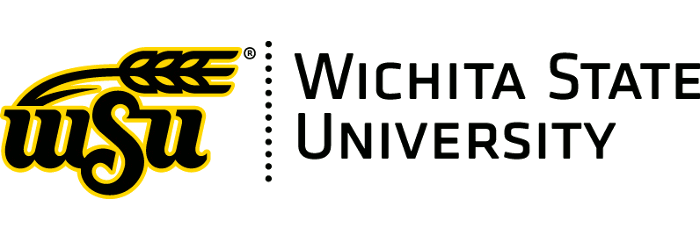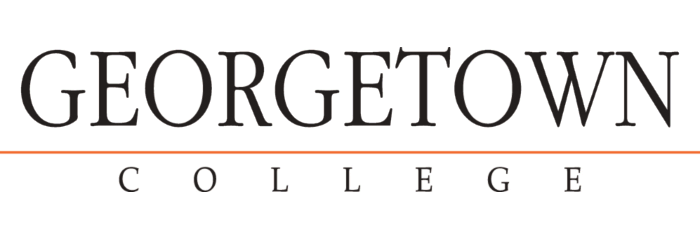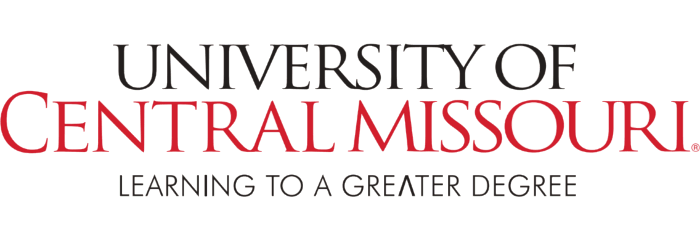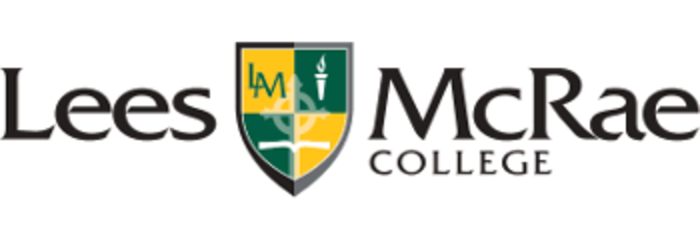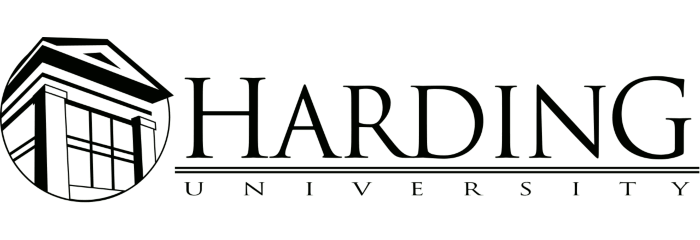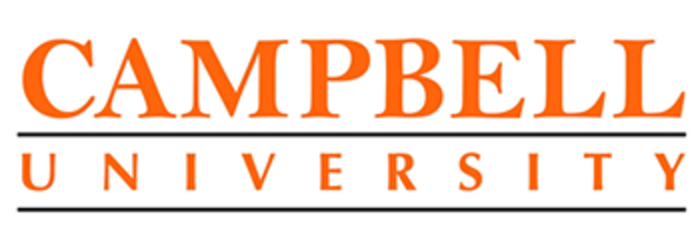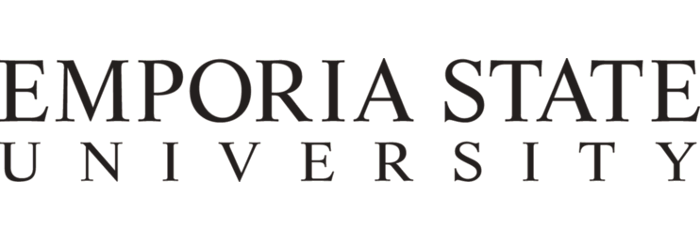
The cheapest online MAT programs offer an affordable and flexible route to earning teaching credentials or advancing your instructional expertise.
Key Takeaways:
- American College of Education ranks #1 for lowest tuition, offering its MAT in Elementary Teaching for just $4,794 yearly.
- Valley City State University leads in post-graduate earnings for MAT grads, with a median salary of $58,049.
- William Woods University offers the strongest student-faculty ratio at 9:1.
Our team manually verifies each tuition cost. Our rankings include only accredited schools with fully online MAT programs. For full transparency on our process, visit our methodology.
2025 Most Affordable Online MAT Programs
| Rank | School | Location | Annual Tuition |
|---|---|---|---|
| American College of Education | Chicago (IL) | $4,794 | |
| Georgia College & State University | Milledgeville (GA) | $5,310 | |
| Kennesaw State University | Kennesaw (GA) | $5,895 | |
| University of Central Arkansas | Conway (AR) | $6,048 | |
| Valley City State University | Valley City (ND) | $6,054 | |
| Wichita State University | Wichita (KS) | $6,099 | |
| Georgetown College | Georgetown (KY) | $6,150 | |
| Friends University | Wichita (KS) | $6,255 | |
| Western Illinois University | Macomb (IL) | $6,371 | |
| University of Central Missouri | Warrensburg (MO) | $6,375 | |
| Lees-McRae College | Banner Elk (NC) | $6,435 | |
| Harding University | Searcy (AR) | $6,630 | |
| Campbell University | Buies Creek (NC) | $6,975 | |
| Emporia State University | Emporia (KS) | $7,089 | |
| William Woods University | Fulton (MO) | $7,125 |
Overview of Affordable Online Master's in Teaching Degrees
A teaching master’s degree provides educators with the latest strategies, tools, and technologies for teaching. Most online teaching master's programs take 1.5 to 2 years to complete, but the exact length can vary depending on the program and a student's study pace.
Online teaching master's programs offer the flexibility that working educators need to balance their studies with their professional lives. What's more, online education programs are often more affordable than traditional on-campus programs.
Although specific requirements vary by program, most online teaching master's programs require applicants to have a bachelor's degree. While some programs prefer applicants with a background in education, most are more flexible and may accept students from diverse academic backgrounds. It's best to check with individual programs to confirm their specific admission requirements — which may include letters of recommendation, a personal statement, and, in some cases, even relevant teaching experience.
The curriculum of most master's programs in teaching includes core courses that focus on contemporary educational theory and practice. These courses cover topics like instructional methods, lesson planning, educational psychology, and student assessment. Many programs offer opportunities for specialization or concentration in areas like K-12 Teaching, Secondary Education, Special Education, and others.
Common Courses
The curriculum of an online master's in teaching program aims to improve a student's teaching skills and pedagogical knowledge. Through coursework covering topics like instructional methods and student assessment, students can gain the competencies required to be successful educators.
Here are a few examples of courses:
Learning Theory
This course explores the ways that students learn, grow, and develop as individuals. It delves into theories of learning, teaching methods, human development, and assessment strategies.
Curriculum Development and Assessment
In this course, students examine how to design, implement, and evaluate a curriculum based on educational standards.
Assessment for Student Learning
This course explores various practices in assessing student learning and improving instructional practices. The focus is on developing formative and summative assessments designed to drive student success.
Funding an Online Teaching Degree
An online master's degree can be worthwhile — but it's an expensive investment, too. Fortunately, there are many ways students can make it easier to fund their education. Financial aid, scholarships, and extra income can all help in earning the degree without breaking the bank. With careful planning, it’s possible to make a master's degree in teaching an affordable goal.
Costs associated with an online master's degree in teaching can include tuition, books, technology fees, and possibly residency or on-campus requirements. Living expenses, such as housing and transportation, are also important to consider, particularly if students plan to reduce their work hours to focus on their studies. A detailed breakdown of costs can help students make informed decisions about their educational investment.
Balancing work and study is another common challenge for graduate students. Luckily, many online programs are designed to be flexible, allowing students to continue working in their current positions. When that’s not the case, some income streams to consider include part-time employment, teaching assistantships, or online tutoring.
Ways To Save Money
There are several strategies students can use to make their teaching master's degree more financially attainable. Below are some ways to save money in college:
-
Choosing an affordable online teaching degree. Online colleges offer some of the most affordable teaching degrees. They have lower tuition costs and eliminate the need for commuting and living on or near campus.
-
Transferring credits. Students who have already completed graduate-level coursework at another institution might have the option to transfer credits and reduce the number of courses required for their degree.
-
Using tuition assistance or reimbursement programs some employers provide as a job perk.
-
Securing financial aid, such as scholarships and grants.
Financial Aid
Financial aid for online master's degrees comes in a variety of forms. To qualify for most of them, students must complete the Free Application for Federal Student Aid (FAFSA). The FAFSA is used to calculate a student's financial need and determine eligibility for federal grants, loans, and work-study programs. Many schools and private organizations also use the FAFSA to determine eligibility for their own scholarships and other types of financial aid.
The most common types of financial aid include the following:
Grants
Grants are typically need-based, meaning that they’re awarded based on a student's financial need. The Federal Pell Grant, for example, is a need-based grant available to students with exceptional financial need. Other grants may be available from state governments, private organizations, and individual schools.
Scholarships
Scholarships are mostly merit-based and awarded based on academic achievement or other factors. That said, there are also scholarships available for students who meet specific criteria, such as being a member of a particular ethnic group or studying a specific subject. Scholarships can come from many sources, including government agencies, third-party organizations, and colleges themselves.
Student Loans
Federal student loans are perhaps the most common type of student loan. They come with many benefits, such as fixed interest rates and flexible repayment options.
Private student loans can be an option for those who can’t take advantage of federal loans. They’re offered by banks, credit unions, and other financial institutions and often have higher interest rates and less flexible repayment options.
There are several repayment plans available for federal student loans, including income-driven repayment plans. These plans allow borrowers to make payments based on their income and family size, and any remaining loan balance may be forgiven after a certain period. On the other hand, most private student loans have fixed repayment terms with no options for income-driven repayment or forgiveness.
Students should carefully weigh the pros and cons of each option before taking out a student loan. Additionally, it's crucial to understand the terms, including the interest rate, fees, and repayment schedule.
Work-study Programs
These programs provide part-time jobs for students, allowing them to earn income while they study. Work-study programs are usually based on financial need. The federal government sponsors the Federal Work-Study Program, but many individual schools also offer their own work-study programs.
What Can You Do With an Online Teaching Degree?
With an online teaching degree, graduates can pursue a variety of careers in education, such as classroom teachers, curriculum developers, instructional coordinators, or school administrators, and principals.
Below, we explore some potential career paths for graduates:
Elementary school teachers
help students learn and grow in the early years of their educational journey. They typically work with children in kindergarten through fifth or sixth grade, teaching them a range of subjects, including math, science, and reading.
Instructional coordinators
design curriculum and teaching standards, create instructional materials, and evaluate the effectiveness of these materials. In addition to working with teachers and administrators, they also collaborate with subject matter experts to stay up-to-date with the latest educational research and best practices.
School principals
A is responsible for the overall management of a school. They set and implement policies, manage budgets, hire and train staff, and collaborate with teachers and parents to create a positive learning environment.
Some graduates may also choose to seek additional certifications or degrees to advance their skills and knowledge in the field. For example, they may pursue a specialist degree in education (EdS), which provides advanced training in a specific area of education. They could also choose to earn an affordable doctorate in education (EdD), which prepares educators for leadership roles in education. Finally, some educators may opt to earn a National Board Certification, a voluntary credential that recognizes advanced teaching skills and knowledge.
FAQs About Online Teaching Degrees
How Do I Choose a Master's in Teaching?
Choosing a master's in teaching program is an important decision. It's crucial to evaluate factors such as accreditation, specialization options, faculty credentials, location, and your own professional goals. Comparing different programs and weighing the pros and cons of each one will help you find the best fit for your needs.
How Much Does a Teacher With a Master's Degree Make?
The earning potential of teachers with a master's degree can vary widely, depending on factors such as the teacher's location, level of education, years of experience, and teaching specialty. Typically, teachers with a master's degree earn higher salaries than those with only a bachelor's degree in teaching. However, it's important to research the salary data for your specific location and level of education to get an accurate picture of potential earnings.
Is There a Difference Between a Master's in Education and a Master's in Teaching?
Yes, there is a difference between a Master's in Education (MEd) and a Master's in Teaching (MAT). Both degrees prepare educators for success in the classroom, but the MEd typically provides a broader focus on education theory, while the MAT is more focused on the practical aspects of teaching.
The MEd degree may cover topics such as curriculum development, educational research, educational technology, and educational policy. For educators interested in pursuing leadership roles or influencing educational systems at a larger scale, an MEd may be a better fit.
The MAT degree focuses on developing the expertise and skills that teachers need in the classroom. It usually includes courses specific to a certain grade level or subject area. This degree is a great fit for teachers who want to enhance their classroom teaching skills or those who seek to focus on a particular subject or student group.
Is an Online Master's in Teaching Worth It?
Determining if an online MAT degree is worth it involves considering affordability, potential career advancement, and specialization options. Affordable online master's degrees in teaching are designed to support both current and aspiring educators in enhancing their skills without a significant financial burden. For instance, the University of West Georgia offers the most affordable program at $4,680 annually, focusing on Special Education and Teaching.
Financial support is also a key factor. Georgetown College provides the highest average financial aid package of $40,308, significantly reducing the net cost for students. Programs like these often include specializations, as our list above indicates.
Given that the top 25 affordable programs are all below $7,960 annually, pursuing an online master's in teaching from these institutions can be a cost-effective way to advance your career. Evaluating these factors against your professional goals and financial situation can help determine if this investment in your education is the right choice.
Student Reviews of Online Teaching Programs
University of phoenix was the best decision I’ve ever made this university given a chance to change my live to the better in my career and the program is very organized and well structured to those students who have jobs and family and have little time to work on their degree, so I’m so thankful I m one of phoenix students and I absolutely recommend to everyone who wants to continue their education and make changes in their lives!
Review Date: 8/16/2025
Would Recommend: Yes
Helpful for Career: Yes
University of phoenix was the best decision I’ve ever made this university given a chance to change my live to the better in my career and the program is very organized and well structured to those students who have jobs and family and have little time to work on their degree, so I’m so thankful I m one of phoenix students and I absolutely recommend to everyone who wants to continue their education and make changes in their lives!
Review Date: 8/16/2025
Would Recommend: Yes
Helpful for Career: Yes
I love attending the University of Phoenix as an adult learner. I like how the classes are structured, the syllabus is clear and reading material is relevant to what is happening now. The instructors are also very helpful. I can apply the information to my job as a trainer of Microsoft 365 and Copilot to government personnel.
Review Date: 4/21/2025
Would Recommend: Yes
Helpful for Career: No
The university of Phoenix is an excellent online program. It is for some and not for all. Like all schools, it requires your time. If you are willing to work online and have an additional 9-10 hours a week; sometimes longer- depending on the student, this would be a great school. I appreciate the flow of the classes, the content, and wonderful resources provided. Lastly, I appreciated the degree taking only 17 months to complete.
Review Date: 4/21/2025
Would Recommend: Yes
Helpful for Career: Yes
I have loved my experience because of the real life impact. These courses have given me not just technical knowledge, but how to implement it. The feedback from the instructors have been very helpful, as well. I am looking forward to completing my degree and I feel ready to start an amazing career.
Review Date: 7/16/2025
Would Recommend: Yes
Helpful for Career: No
If you are looking for advisors who will help you through school and understand the requirements for your degree do not go here. I attended this school for three years. First the school offered me a payment plan that I did not know about till later- if I took only a certain amount of credits my payment for each month would have been manageable but my advisor assigned me more credits. Also I was in the credential program and not to my knowledge you are supposed to student teach ( I knew that) but... Read More
Review Date: 2/19/2021
Would Recommend: No
Helpful for Career: No
I am currently completing a Masters Degree in Career and Technical Education with a CTE Coordinator certificate through the University of Wisconsin - Stout. My program is designed to be completed online by a working professional, so it is an extremely flexible program. While I am currently taking 2 classes a semester, you can take just one class a semester if that works better for your schedule. There is also the option to do blended courses or on-campus courses, meeting the needs of every student.... Read More
Review Date: 2/9/2018
Would Recommend: Yes
Helpful for Career: No
I had to write my review after seeing so many negative reviews. I found WGU's program excellent and exactly what I needed. The work-at-my-pace was very important since I was working full time as a teacher while working on my master's degree. While it is work-at-your-own pace, you do have to finish a certain number of credits per semester to stay in good standing. My mentor was good at putting the positive pressure on me when I needed it and also connected me to additional resources. While all of... Read More
Review Date: 10/2/2021
Would Recommend: Yes
Helpful for Career: No
The application process was easy and seamless. My Admissions Counselor stayed in touch with me every step of the way. I enjoyed using their blackboard online to participate with and interact with other learners. I look forward to a rewarding experience with CSU Global.
Review Date: 11/17/2017
Would Recommend: Yes
Helpful for Career: No
I can't say the road the road was easy,bu the journey accomplishing my goal lead to the discovery that my education is just starting. Education is life long. Its everlasting. Learn something new by extending your assignments beyond the classroom. AIU supplies the resources, tapes, books and all other reference material for research. The advisers are down to earth and seem vested in the students' success. You get that feeling o being released into the world to do Much success to myself and future... Read More
Review Date: 3/13/2020
Would Recommend: Yes
Helpful for Career: No
If you're looking for a single subject teaching credential program that is fully online--stay far away from this place. While the methods teachers are great (those you teach your content area-ex: English, Math etc), the organization is abominable. The program is an absolute mess. Until they get organized and figure out what they're doing--STAY AWAY. I went all the way to my last semester, frustrated with the disorganization and lack of communication, but taking solace in the fact that I was learning... Read More
Review Date: 1/30/2020
Would Recommend: No
Helpful for Career: No
Nothing good had come from this school. I was lied to from the beginning when I started my graduate program. I was originally told that I will be able to overlap my final class (the capstone) with my other classes. I was allowed to do so in my undergraduate degree. When I went to request the lock be lifted, I was then told that it would be too difficult and that I need to finish all other courses before I am allowed access to the capstone. My gpa is at a near perfect score after doing 10 classes... Read More
Review Date: 9/6/2019
Would Recommend: No
Helpful for Career: No
Great program! The best classes were the on-campus art studio classes during the summers. I learned a ton, and feel this program improved my teaching ability and knowledge of art education. Even though I live on the west coast, this program was the best option for me in terms of cost and overall benefit. Most of my classes have had between 12-20 people in them. The professors get to know you, and give high quality feedback on your progress. There is a capstone paper in the second year of the program,... Read More
Review Date: 11/12/2018
Would Recommend: Yes
Helpful for Career: No
Overall, I had a pretty good experience with Ashford University. I was initially uncomfortable with the courses being year round. As I got into the hang of things, everything became smooth sailing. My advisor was always willing to help and would call me if I missed an assignment or discussion to check in with me. It became apart of my lifestyle rather than taking over my life. I was able to take care of my children and work full time while completing this degree program. If you are someone comfortable... Read More
Review Date: 4/9/2019
Would Recommend: Yes
Helpful for Career: Yes
If you want a school that is incredibly disorganized, doesn't care about student success, and ignores student contact and requests this is a great school for you. However if you want a school that won't rip you off, will assist you, and provides a quality education do not enroll here.
Review Date: 2/22/2019
Would Recommend: No
Helpful for Career: No
Millersville University has an excellent asynchronous, online graduate program for Gifted Education. The core classes are completely updated and informational - I actually learned rather than completing busy work. The professors are field tested and are eager to share their experience with their students. They also understand that most of us are full-time, working teachers who are trying to earn a Master's degree while still teaching. They are flexible and try not to pile on too much work while still... Read More
Review Date: 6/26/2017
Would Recommend: Yes
Helpful for Career: Yes
I highly recommend CSU-Global for a few specific reasons- 1. Online - I live in the Middle East but wanted an American master's degree. The freedom and flexibility that online schooling provides can't be beat when you work full time and can't move to where the college is. 2. Affordable - With scholarships and opportunities for discounts, my master of science in teaching and learning was surprisingly affordable. 3. Professors - Just like any brick and mortar school, some teachers and students care... Read More
Review Date: 7/29/2019
Would Recommend: Yes
Helpful for Career: No
My goal is to graduate no later than August of 2019. I began my journey in January of 2018. FlexPath is the exact program I needed. I have received all of the help and support I have asked for throughout the entire program: Enrollment Counselor, FlexPath Coach, Writing Center, Financial Aid, and Faculty. I cannot believe I am already 83% of the way through. I am ecstatic! My Enrollment Counselor and FlexPath Coach worked with me to make sure that the courses I took are the ones I needed. All classes... Read More
Review Date: 5/15/2019
Would Recommend: Yes
Helpful for Career: Yes
The Flex Path format of the Master's Program in Teaching and Learning has been a win-win situation for me. It allowed me to work at my own pace and get the support I needed from the initial call, enrollment and during the course work. It was not easy. Yet, it was very rewarding to be able to get the work done and experience immediate results with the competency-based curriculum.
Review Date: 5/16/2019
Would Recommend: Yes
Helpful for Career: Yes
University of Phoenix is an excellent school. The faculty are easy to talk to and will help students achieve their academic goals. However, University of Phoenix is not a school where you will not be challenged. You will have to work to earn your grades, but they have plenty of workshops, student and faculty-led supports to take advantage of. This school is great for the working parents and older students who would like an alternative to brick and mortar colleges. In addition, University of Phoenix... Read More
Review Date: 11/19/2016
Would Recommend: Yes
Helpful for Career: No



